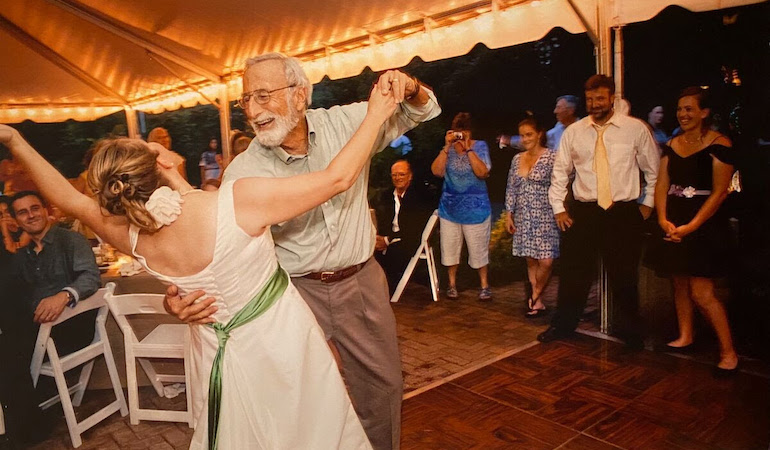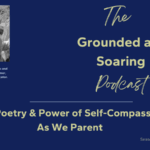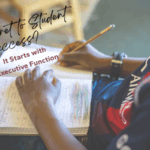Observing the third anniversary of our father’s death, my family and I gathered over Zoom to say the Mourner’s Kaddish—a Jewish tradition for honoring and remembering lost loved ones. As we told stories, I recalled the memory that had been on my mind that week: it reflects a potent lesson that I share with you today, for I’ve harvested such helpful wisdom from it to impart to my kids; I hope you find value in it too.
A few years before his cancer diagnosis, we had a birthday party to celebrate Perry, my dad. I had a moment of awe and admiration for the joyful, fulfilling life he had created and reached. I raised a glass and said to him, “Here’s to you, Pop. Congratulations on making your dreams into reality.” Without missing a beat as he raised his glass to his lips, he said, “Better to make your reality your dreams.”
This notion that it is “better to make your reality your dreams” was not originated by our dad. Existentialist philosophers express such sentiments, and Anaïs Nin famously wrote that “We see the world not as it is, but as we are.”
Power of Attitude
Social learning theory illuminates the human strategies we use to interpret our lives. Every day we experience things, both outside ourselves (e.g., external events around us, behaviors of others, praise from others, blame from others, etc.) and inside ourselves (e.g. emotions, thoughts, moods, fatigue, etc.). We humans tend to either place the locus of control, the dominant source of these outside and inside experiences, as caused by external or internal forces.
When we interpret the event from an external locus of control, we assign responsibility for the experience to forces outside of ourselves: luck, benevolent forces, malevolent forces, fate, just behavior, unjust behavior, etc. When we interpret events from an internal locus of control, we believe our own actions and attitudes determine the outcomes we experience.
Here’s the paradox: While it’s inarguable that external conditions profoundly influence our life experiences (e.g. a recent study from Georgetown University evaluating the influence of early academic ability versus the economic conditions entered at birth, offers just one such example), our lives tend to be far more effective when we believe that it is through our own efforts and attitudes that we achieve and experience what we do–when we see ourselves as the active pilots of our lives, not the passive passengers.
When Perry remarked to me that it is “…better to make your reality your dreams,” he pointed to the power of attitude: our interpretation of what we experience, in the end, will matter more than the actual, objective experience itself.
Raising Children Who Bounce Back
As parents, we generally want to help our children develop the most priceless quality of grit, the resilience to see their lives as an adventure of challenges. A person with grit knows that they will inevitably experience struggles, failures, and disappointments, and, that through their own efforts and determination, through the energy to get back up after falling down and trying again, they can achieve their goals. Grit is the ability to see the locus of control more often as internal rather than external.
An anxiety I often hear from parents is this: “We’ve worked hard to build the resources to be able to provide our children with incredible opportunities and experiences. We worry that we may be making it too easy for them, giving them an unrealistic view of life, and not building in them enough grit.” My take on this is the following:
- Always emphasize effort and never giving up. Praise their efforts and hard work over everything else.
- Be kind and honest in your appraisal of the quality of their work (and age appropriate). Kids and teens can tell when they’ve put their best foot forward or not. Don’t try to help them develop healthy self-regard by praising everything they do regardless. And, recognize and celebrate their accomplishments that come through effort and hard work.
- Don’t fight your natural instinct and wisdom as a parent to provide your children and teens with the healthiest, most ideal opportunities and experiences. They are constructing themselves, and with the foundation of loving, safe, joyful childhood and adolescence, they’ll enter the world as adults with greater self-possession, confidence, and the realistic optimism needed to tackle challenges, know who they are and what they’re all about, and how to bounce back from failures and struggles–which are inevitable in everyone’s life.
In his junior year in college, I got a phone call from our twenty-year-old son. He had just submitted his application for a program about which he dreams of getting admitted; it would put him on a career path that is his goal. I said, “Congratulations! I know you worked so hard on the application. Now it’s out of your hands, and you just wait for their decision. And, if you get rejected, you…” and then he cut me off and finished my sentence for me. Our son said, “…I’ll try again.”
Such beautiful music to this Proud Poppa’s ears.
PS: If you’re interested in more lessons from my incredible father, there’s more!

As Head of School, Sam is responsible for ensuring that Marin Montessori flourishes and that the School’s mission is brought to life each and every day.





